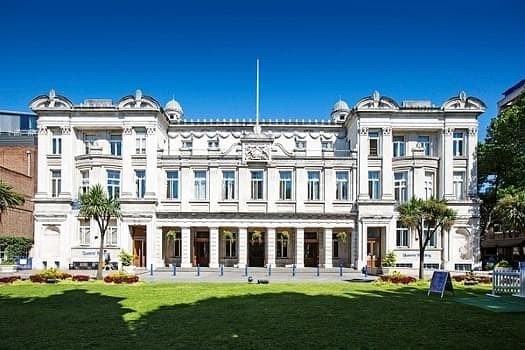BEng (Hons) Aerospace Engineering at Queen Mary University of London
London, United Kingdom
- Tuition Fee £ 29,950
- Country Rank-
- Duration36 Months
- Score IELTS: 6 TOEFL: 79
Program Overview
Interested in the design, construction and operation of aircraft, spacecraft, drones, launching systems, green air transport, green energy, sport vehicles or sustainable earth bounded vehicles? Our programme in Aerospace Engineering could be for you.
Aerospace engineering is a rapidly changing and challenging discipline in which areas such as aerodynamics, flight mechanics and performance, wind energy, propulsion, aerospace structure and materials and space engineering and robotics are being studied and researched. Addressing the future sustainability of air transport, earth bounded transport systems and indeed performance of sport vehicles such as Formula 1 cars depends on the innovations in which aerodynamics, flight performance, propulsion, and materials play an essential role.
In Year 1 you’ll build a strong foundation in fundamental engineering concepts such as fluid mechanics, design, materials and mathematical modelling, whilst being introduced to Aerospace engineering through our ‘Explore Aerospace Engineering’ module. Modules in design and experimental practice, will help you to develop the practical workshop and laboratory-based skills necessary for all engineers, and put core programme material into perspective and to practical use.
During Years 2 and 3, you’ll develop your understanding of this rapidly changing and challenging discipline studying areas including flight mechanics and performance, and aircraft and spacecraft design. We’ll also explore innovation in aerodynamics, flight performance, propulsion and materials and how these fields can be used to address the future sustainability of both air and space transport, as well as earth-bounded vehicles and energy technologies such as cars and wind turbines.
Students who choose to take the MEng degree will learn advanced modules and carry out an industry or research-linked project that focuses on solving real engineering research and design problems. Recent projects have included designing and constructing a rocket capable of breaking the UK altitude record and designing a solar-powered racing car.
We place strong emphasis not only on the technical content of our modules, such as mechanics, thermodynamics and design, but also on the cross discipline skills vital for an engineer to function in the work place. We have mapped the modules in our programmes to a range of attributes that we would like our students to attain, within the areas of creativity, resilience, communication and professional practice in order to produce well-rounded, interested and highly employable graduates. This mapping ensures these skills are embedded in the technical modules on the programmes. This not only ensures that the students develop technical knowledge and understanding as they progress through their degree, but it also gives us the confidence that students will graduate with skills they can apply to a range of future careers or higher-level study.
We've recently undertaken a review of our programmes to ensure that they will prepare you for life beyond 2030 and ensure they reflect the global challenges facing both our society and your future as engineers. We have developed the modules we offer in consultation with our students, staff and industry to enhance your student experience and graduate employability.
Cost Of Studying At Queen Mary University of London
Interest rates as low as 8.9% *
250K+
Students Assisted
800Cr+
Loan Amount Disbursed
5000+
Loans Sanctioned
